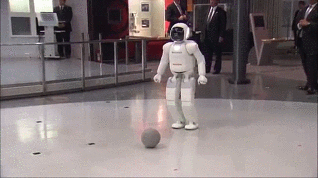Sentient computers aren’t theoretically impossible, but no one–no one–can say when they’ll be a reality, not with any real confidence. In a Genetic Literacy Project piece about sexbots coming to (and in) your bedroom, David Warmflash stresses this very point. An excerpt:
Now, when we really imagine androids, most of us think of the super-intelligent human-looking beings that science fiction has dreamed up, such as Star Trek’s Data. To get there the field of AI needs to advance significantly. It is common these days for futurists to predict how much time it will be until humans create certain technologies imagined by science fiction. The predictions are made by calculating the present rate of technological progress in phenomena, such as computing power and speed. However, since they cannot really know anything about the obstacles that programmers and engineers will face along the way, the predictions are often wrong. In 2000, the popular futurist, transhumanist author Ray Kurzweil predicted this:
By 2009, computers will disappear. Visual information will be written directly onto our retinas by devices in our eyeglasses and contact lenses. In addition to high resolution virtual monitors appearing to hover in space, these intimate displays will provide full-immersion visual virtual reality. We will have ubiquitous very high bandwidth wireless connection to the Internet at all times. “Going to a Website” will mean entering a virtual reality environment–at least for the visual and auditory senses–where we will meet other real people. There will be simulated people as well, but these virtual personalities will not be up to human standards, at least not by 2009. The minuscule electronics powering these developments will be invisibly embedded in our glasses and clothing. Thus we won’t be searching for our misplaced mobile phones, Palms, notebooks, and other gadgets.
Becoming an android: Human mind uploading
While many of those predictions certainly could come true in the years to come true in the years to come, clearly they were too optimistic in 2000. When it comes to predicting when sentient computers will appear, things get even harder. Conventional computer programming is advancing at warp speed and works very well for a wide range of applications, from interpreting medical imaging data to controlling spacecraft, but the programmer needs to understand the system that the programing is designed to control. That simply does not work when the goal is to build a mind that learns, develops, and eventually thinks for itself. For this reason, AI scientists are using strategies inspired by evolutionary biology and neuroscience.
At the time of the Wright brothers, nobody could predict how long it would take before the first human moon landing. Similarly, today, we don’t know how long it will take for sentient machines to appear. All we can say is that, at some point, a sentient, artificial mind will probably be created.•
Tags: David Warmflash, Ray Kurzweil

